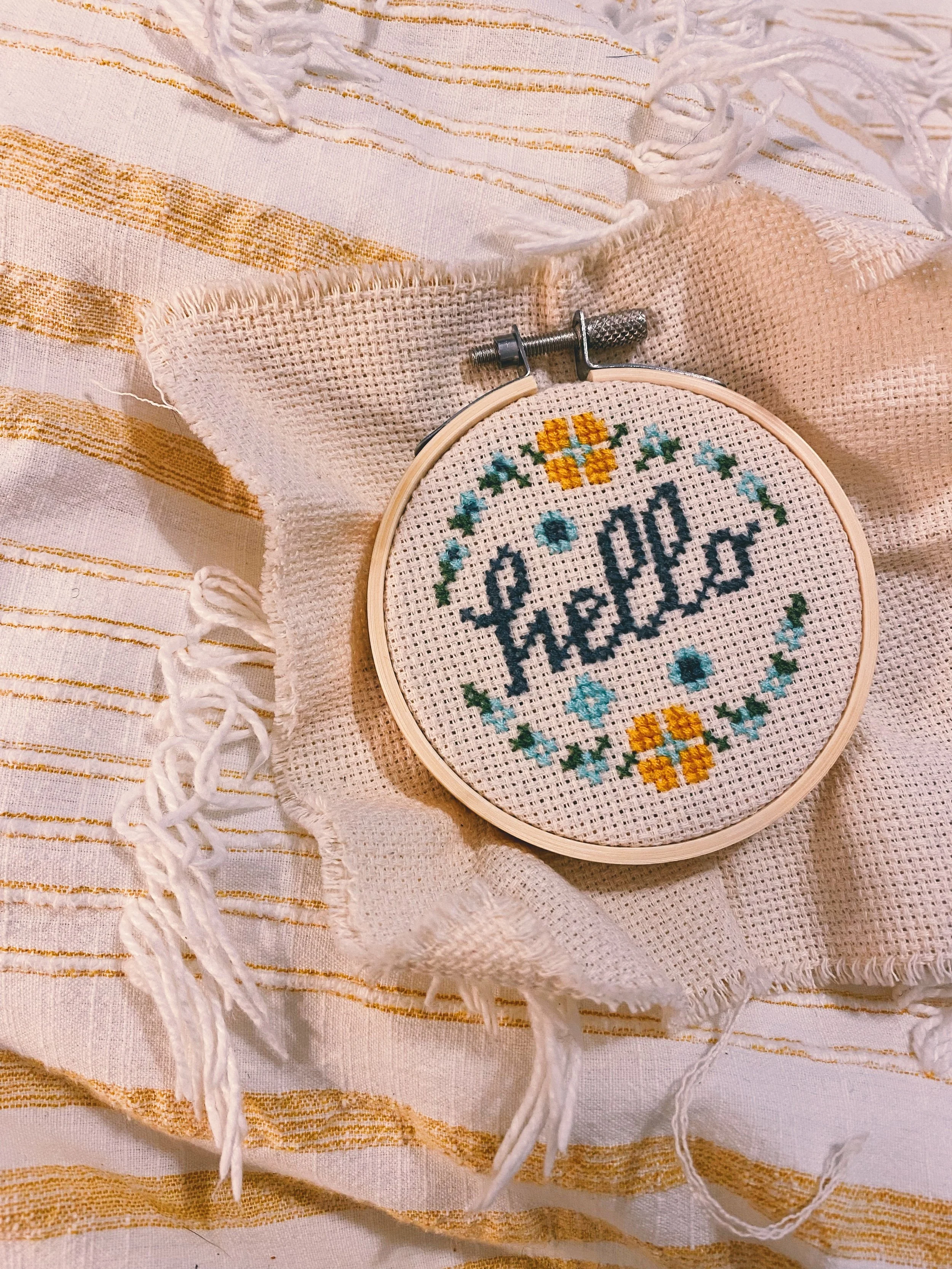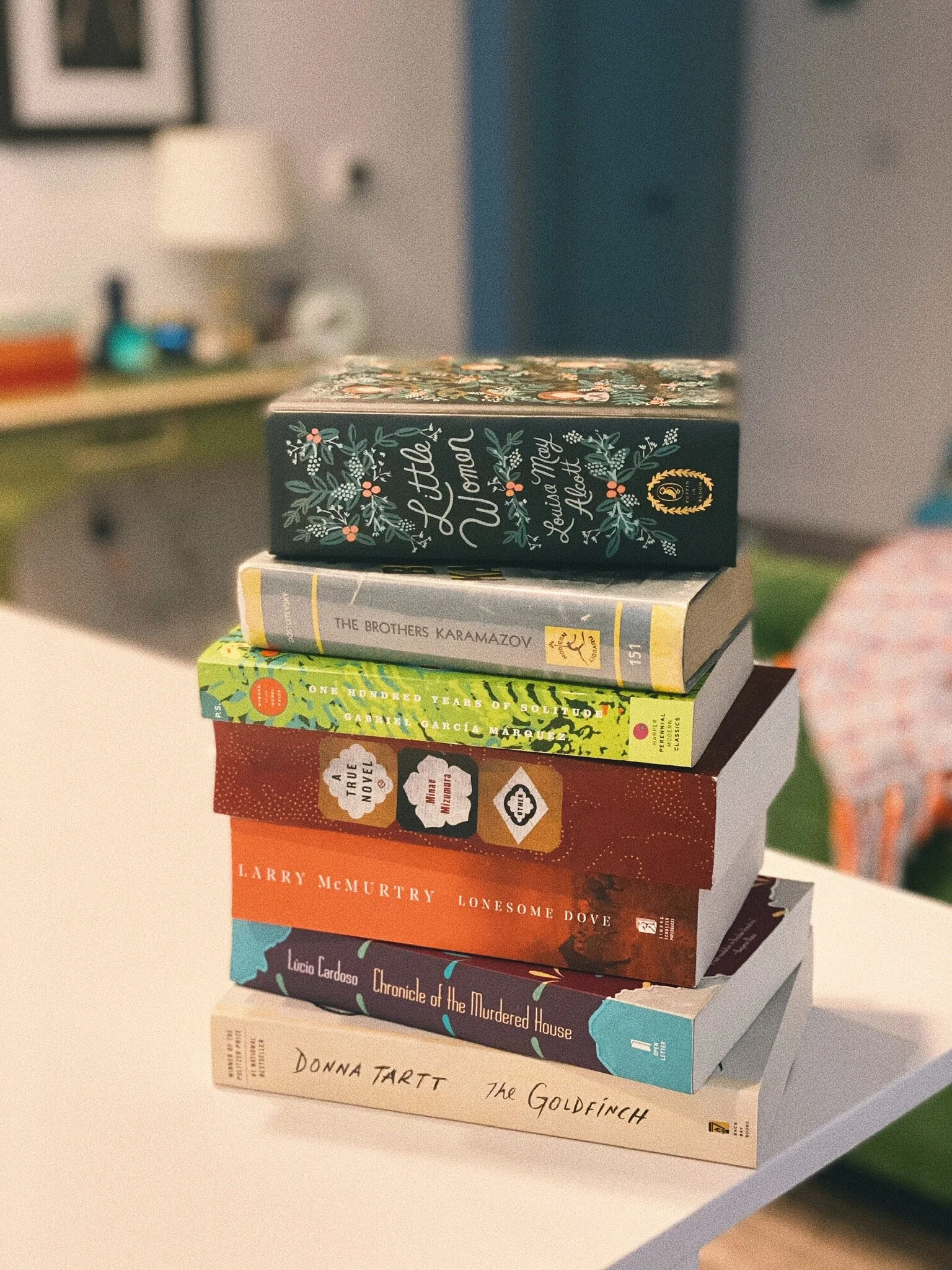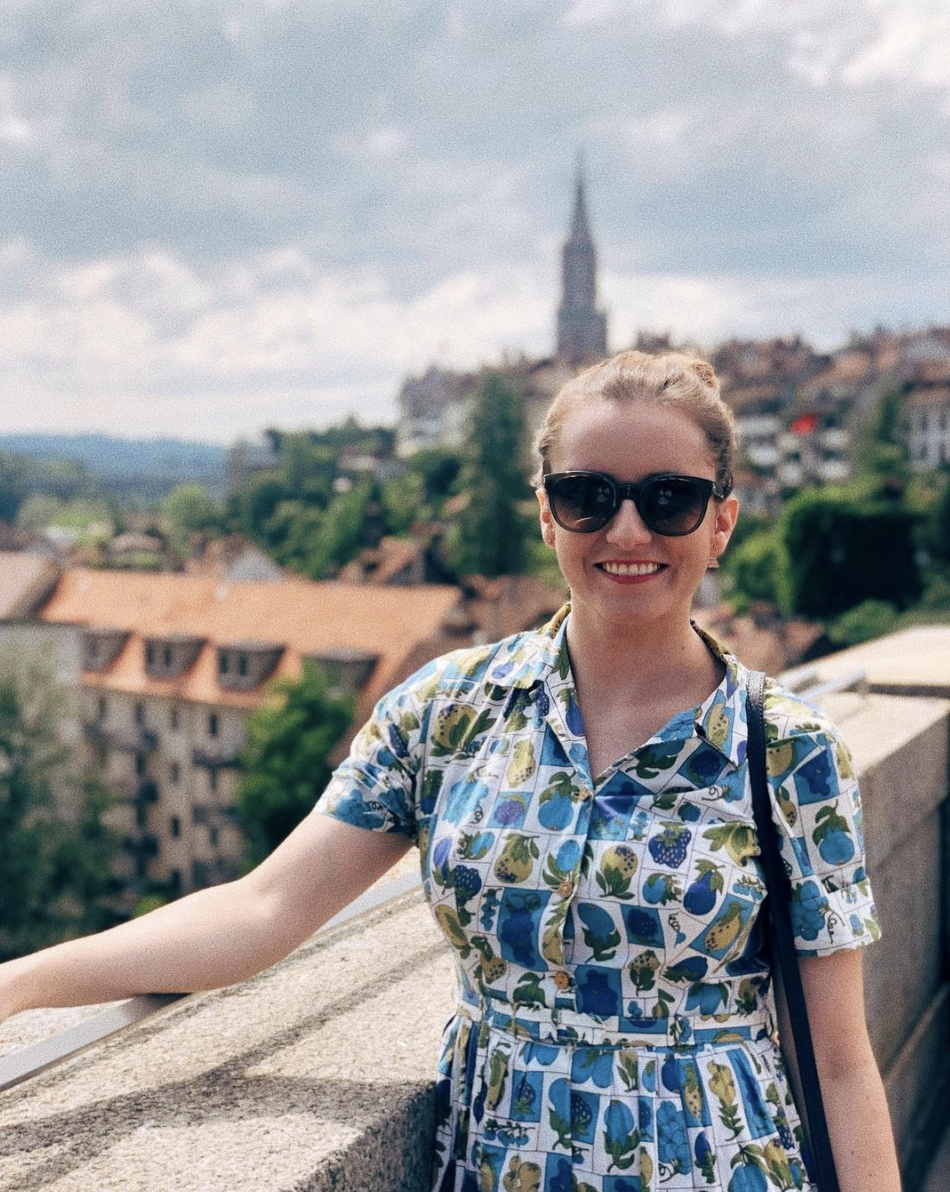How to Plan and Write Your First Screenplay in One Month
/One of the greatest benefits of writing a screenplay is how quickly you can start and finish a script. This is the case because of the way screenplays are formatted, the words per page being much shorter than they would be in a novel, but also how the pages themselves are spaced. As a result, planning and writing a solid screenplay draft in one month's time is not only doable but far less stressful of a process than it would be to write a novel in that time.
Additionally, should you intend to one day also write a novel, a screenplay is a quick way to validate to yourself that you can write longer pieces of work and you can do it in a short amount of time. As a result, if the prospect of winning National Novel Writing Month (NaNoWriMo), has always seemed far off, in writing a script first you'll quickly prove to yourself your capabilities as a storyteller!
Oftentimes – because screenwriting is far less time-consuming in terms of the actual l writing – I have even written a script and a novel at the same time simply because not only is writing the screenplay such a faster process, so that I am not doing both at the same time the entire duration of my novel, but in writing a script while I write a novel I can think more visually and start using the two different writing mediums to enhance one another!
RELATED: 5 Reasons Every Novelist Needs to Write a Screenplay
As you can see, the benefits of writing a screenplay reach far beyond how it will help your other work. If you have a story in mind for a script, the start-up process can be very quick on your end, hence why I've laid out a simple approach to plotting and writing your script in one month's time.
All you need is an idea!
The Benefits of Writing Your Screenplay In One Month
Whether you're someone who writes by the seat of their pants or someone who needs to plan out everything meticulously, the benefit of writing a screenplay in one month is that it is much easier to see the full arc of your story as you are writing since you are writing your script so quickly.
Often with larger projects, we can get to the point where we forget what happened at the beginning of the story and need to refresh ourselves, tacking on extra work to always ensure we're on the same page.
When you write fast, though, you can better perceive the entire narrative as a whole story instead of viewing it in the bite-sized pieces you would if you were writing a novel or writing your script over the span of several months.
Additionally, first drafts are always far from perfect and are more about powering through the writing process so you have an actual finished product to work with and refined. It's about getting the words on paper and perfecting them afterward.
As a result, if you can write the first draft fast, you'll be able to start fine-tuning your story even sooner and crafting it into the film or TV show you want it to be.
The One-Month Plan
Now that you understand not only why writing a screenplay quickly is so easy, but also the benefits of writing the first draft quickly, it's time to create your one month plan.
A fair warning – this plan isn't for the feint of heart or for those who need to write slowly. This isn't to say those who have never written a screenplay before can't do it – by contrary this one-month plan might be the perfect way to knock out that first script and prove to themselves that they can do it – but that those who worry their life is too busy at the moment or aren't quite prepared for an intensive month of writing should consider a slower pace to writing.
A slow pace is by no means bad, and sometimes better for other writers, a feature further discussed in Swank Up Your Script, where I even have a three-month approach to feature film writing.
However, for this approach to writing a feature-length film or a television pilot, most of the writing will be done in the final two weeks of the month, making it more intensive during that time period, but still very doable for those who can find the time!
Additionally, this approach to writing is intended for those who already have an idea for a story and therefore does not include in the schedule time for finding your story idea, especially since the process varies from person to person.
Week One
The first week of the month is dedicated to big picture planning, such as analyzing themes and characters and developing your conflict.
I recommend most people avoid doing any plotting during this phase and instead just focus on really knowing their characters and conflicts as well as possible, as this will give you a better foundation to work with in the following week.
Though there is no wrong way to approach this week – all you want to focus on is deeply knowing the big picture ideas of your story – I recommend most people start out with the theme of your narrative first. This will make it much easier to create a unified narrative, with every single facet rooted in your theme from the beginning versus you having to try and tie the pieces together later to a theme you've "discovered."
From there, you'll just want to focus on assets like your characters – and knowing them as well as possible, as they are what drive your story – and the conflicts that they encounter, both internal and external.
Be sure to know the difference between a main character and a protagonist by the end of the week, should your story be filled with a huge cast of characters, to make the planning phase easier, but otherwise don't worry about anything else besides these major elements of your story!
Sample schedule for a feature-length film:
Day One – Determine your story's themes and conflicts
Day Two – Write your main character's bio as it relates to themes and conflicts. Spend time learning about their desires, needs, quirks, and so forth.
Day Three – Write mini bios about your side characters and how they relate to your main character, and potentially each other.
Day Four – Create an inspiration board relating to the themes and story, but also start pinning images of the setting. Define this setting further by writing a paragraph about it.
Day Five – Write a journal entry from your main character. Try to better understand their internal place at the beginning of your story.
Day Six – Begin jotting down the overall arc of your main character's internal struggles. Think about it in terms of a beginning, middle, and end.
Day Seven – Match the internal struggles from yesterday to the external conflicts of your story. Focus on using the external as a way to symbolize the internal, if possible, then begin jotting down the shape of these conflicts.
Make planning easy with my free calendar!
Week Two
Week two is where you'll begin to put everything into some sort of action plan, even if you don't like plotting. Your main goal is to give yourself a ton of material to use whenever you are feeling stuck in the last two weeks of the month.
This can be achieved in many ways, though the most obvious approach would be with an outline.
For those writing a feature film, I would suggest outlining according to the eight-sequence method created by the Script Lab, which I have outlined here, as it is not as strict as Blake Snyder's beat sheet and therefore does not churn out the formulaic Hollywood plots I so greatly detest!
If you plan to write a television pilot, I recommend looking at my in-depth post on writing them for a better guide to planning your story out.
If you are more averse to outlining, you'll want to start creating "grab bags" to work with. These are essentially brain dumps of things you'll need when you get writer's block the last two weeks of the month, meaning doing things like making a list of scene locations to use, scene ideas you want to incorporate, and visuals you hope to create.
This is the approach I prefer to use for my first drafts, as it allows more flexibility and creativity, and it's the one I teach in Swank Up Your Script, though it can easily be combined with any plotting method quite seamlessly.
By the end of this week, you should have your daily writing schedule planned out for the next two weeks. This schedule can either be writing the same amount of pages per day for two weeks straight so that if you plan to write a 90-page script you'd plan to write about six and a half pages per day.
Or you can plan out a flexible page count goal, giving yourself a day off each week or analyzing your schedule for your busy days and creating different page count goals per day.
Sample schedule for a feature-length film:
Day Eight – Create a "storyboard" for your project with ten key visuals you want to incorporate. Be sure to relate them to your theme.
Day Nine – Determine the overall color scheme of your film. Start creating subplots and subconflicts to enhance your narrative.
Day Ten – Write a list of ten locations you can use for your film or television show.
Day Eleven – Begin outlining your project. If you do not like to outline, try creating a stack of potential scene cards you can turn to whenever you need guidance in your story. Often these can include things that you want to ensure you remember to do in your story or just ideas for good scenes to incorporate.
Day Twelve – Continue outlining your project. Be sure to focus on incorporating various plotlines to use.
Day Thirteen – Finish outlining your project.
Day Fourteen – Create your writing schedule for the next two weeks.
Week Three
Depending on the length of your project, you'll begin writing this week, but it may not be right away if you're writing a thirty-minute pilot, for example. Instead, you may stretch out more of the planning into this week and just use the last week for writing, but it's up to you!
Below I've created a version of my two-week writing process that I used to write a feature-length film in two weeks time. You'll notice that in this week, I even give myself a day for a break and a day where I write less.
Depending on the project, I tend to give myself some flexibility like this so that should I miss one day due to something else, I won't feel stressed out and like I can't reach my goal. I highly recommend you do the same, simply because if you were to write ten pages a day of your script in two weeks time, you'd have nearly 140-pages of work, which is 20 pages over the industry standard maximum, giving you plenty of days for breaks or slower days like my five-page day at the end of this week's mockup schedule.
Sample schedule for a feature-length film:
Day Fifteen – Write ten pages
Day Sixteen – Write ten pages
Day Seventeen – Write ten pages
Day Eighteen – Write ten pages
Day Nineteen – Write ten pages
Day Twenty – Write five pages
Day Twenty-One – Break day. Assess how the story is going and whether you should make any changes.
Week Four
The final week of the month should be completely dedicated to writing, though how many pages you write per day and how many days you spend actually writing – remember, you don't need to write every day – will vary, I have continued my sample schedule of what it looked like when I wrote a feature-length film in two weeks.
Keep in mind that though the standard length of a feature-length script is between 90-120 pages, it is better to let your story carry you where it needs to – or doesn't need to – in that first draft, so if you get to the middle of the week and are finished early, don't force extra pages where they aren't necessary.
Sample schedule for a feature-length film:
Day Twenty-Two – Write ten pages
Day Twenty-Three – Write ten pages
Day Twenty-Four – Write ten pages
Day Twenty-Five – Write ten pages
Day Twenty-Six – Write five pages (Accounting for work or other areas in life that may interfere.)
Day Twenty-Seven – Write five pages
Day Twenty-Eight – Wrap up film and finish whatever few pages are left
Once you're done, be sure to celebrate and treat yourself to something nice! It can be a sweet treat or a new piece of clothing, or you can opt for a more relevant reward to further your craft! I've got a full list of storytelling rewards you can give yourself here!








